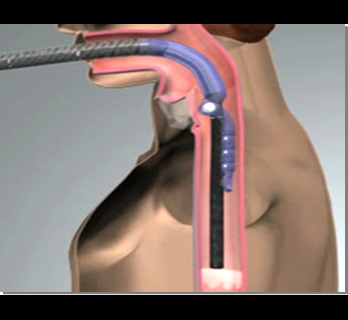You may notice a patient’s acid reflux sooner than they do
That’s where dental professionals can play a key role in identifying patients at risk and helping them get the proper care when needed.

Most of you know that painful burning sensation caused by heartburn. If it is persistent, that is if you are suffering the symptoms more than twice a week, this may be a sign of gastroesophageal reflux disease, or GERD. But not everyone with GERD has the symptoms of heartburn. Because of this, you could have GERD and not even know.
That’s where dental professionals can play a key role in identifying patients at risk and helping them get the proper care when needed.
Related reading: The 5 new words of dental practice ... and what you should know about them

Dr. Lauren Gerson, a gastroenterologist at California Pacific Medical Center, San Francisco, is a proponent of having dentists be educated on GERD and also have them prepared to refer to specialists whenever an at-risk patient appears in need of screenings.
Dr. Gerson is a nationally-recognized researcher in the field of general gastroenterology, including colorectal cancer screening, GERD, gastrointestinal motility disorders, capsule endoscopy and gastrointestinal bleeding. With the number of people suffering from GERD on the rise, she noted that growing research linking GERD with patients who have dental erosion is beginning to gain steam.
“Recently there's been some long-term literature on the potential association with dental erosions and GERD, indicating that GERD could be a cause of dental erosions in some patients. Dentists should be aware of this type of erosion, and ask patients about these symptoms,” she said.
If GERD is suspected, dentists can refer patients to a specialist, like Dr. Gerson, who may prescribe treatment or recommend lifestyle changes specifically for the treatment of GERD. Dr. Gerson says sufferers should avoid eating dinner within 3 hours of bedtime and avoid eating heavy meals prior to lying down at night.
“Patients with ongoing reflux symptoms despite medical therapy or alarm symptoms like difficulty swallowing, should undergo further evaluation with endoscopy (placement of a flexible tube into the swallowing pipe),” said Dr. Gerson. “In particular white men over the age of 50 are at risk for precancerous changes in the esophagus and should undergo screening if they have chronic reflux symptoms.”
HOT READ: Simple and effective ways to get your practice's schedule back on track
GERD can cause health problems in addition to loss of enamel, including irritation and inflammation of your esophagus, which may even lead to Barrett’s esophagus (a treatable, precancerous condition) and esophageal cancer.
As dentists who see most of your patients on a regular basis for oral exams, you may find early symptoms of this potentially serious problem before it progresses. A large majority of systemic diseases have oral manifestations that may be detected during an oral exam by a dentist, so it is important for dental professionals to be aware of and on the lookout for signs of GERD.
“We know that there's definitely a relationship with weight gain and GERD,” she said. “GERD has been increasing in the US due to the high fat American diet that has included increased consumption of fast foods, more late night meals, and larger portions. The more fat you have in your diet, the more it delays stomach emptying, and the more likely stomach contents are able to come up into the esophagus and cause heartburn.”
Dr. Gerson suggests a low fat diet and also instructs her patients not to eat right before they go to sleep. It is also important, however, for all physicians to be on the look out for symptoms of GERD. Because some sufferers have silent or atypical GERD-one sign of which may be dental erosions-they may not even be aware that they are risk of potentially serious health problems.
For those with bad cases of GERD, gastroenterologists can help treat them with a variety of options including a dietary changes, medications, surgery and endoscopic procedures like Transoral Incisionless Fundoplication or TIF.
“If patients have mild symptoms, they can be advised to take over the counter medications as needed for symptom control,” she explained. “If it's a more severe case of GERD and if there are other findings on endoscopy like a large hiatal hernia, then we might send them to surgery to get the hernia fixed.”
HOT READ: 5 reasons your patients are looking for a new dental practice
Dr. Gerson says some patients choosing traditional surgery have had side-effects after surgery relating to trouble swallowing, feeling bloated and reporting difficulty with belching, which is why the TIF procedure, performed through the mouth and without incisions, is becoming a viable option more and more patients are considering.
“We're trying to come up with other options that are less invasive compared to surgery,” Dr. Gerson said. “The TIF procedure is an alternative which we consider to be an endoscopic therapy. Instead of making incisions in the patient, the doctor enters the stomach with the instrument. What you're doing is you're essentially rebuilding the gastroesophageal valve without actually subjecting the patient to surgery. It's all done endoscopically.”
Because dentists should play a vital role in educating patients and in detecting possible bad cases of GERD early on, Dr. Gerson is hoping for increased awareness within the dental community. She also plans to conduct future studies to examine the potential relationship between GERD and dental manifestations.
For more information on GERD and how you can become more pro-active in your dental practice, visit Dr. Gerson’s website at http://www.laurengerson.com or go towww.GERDHelp.com